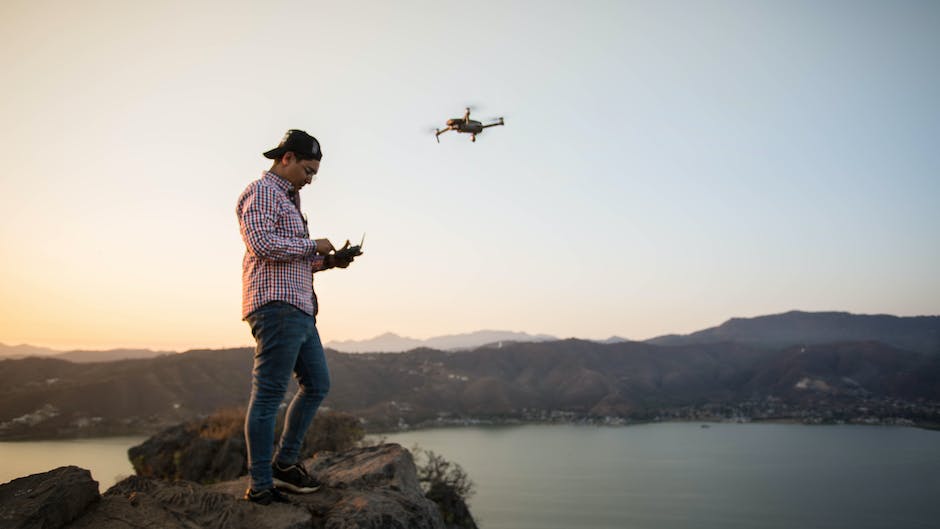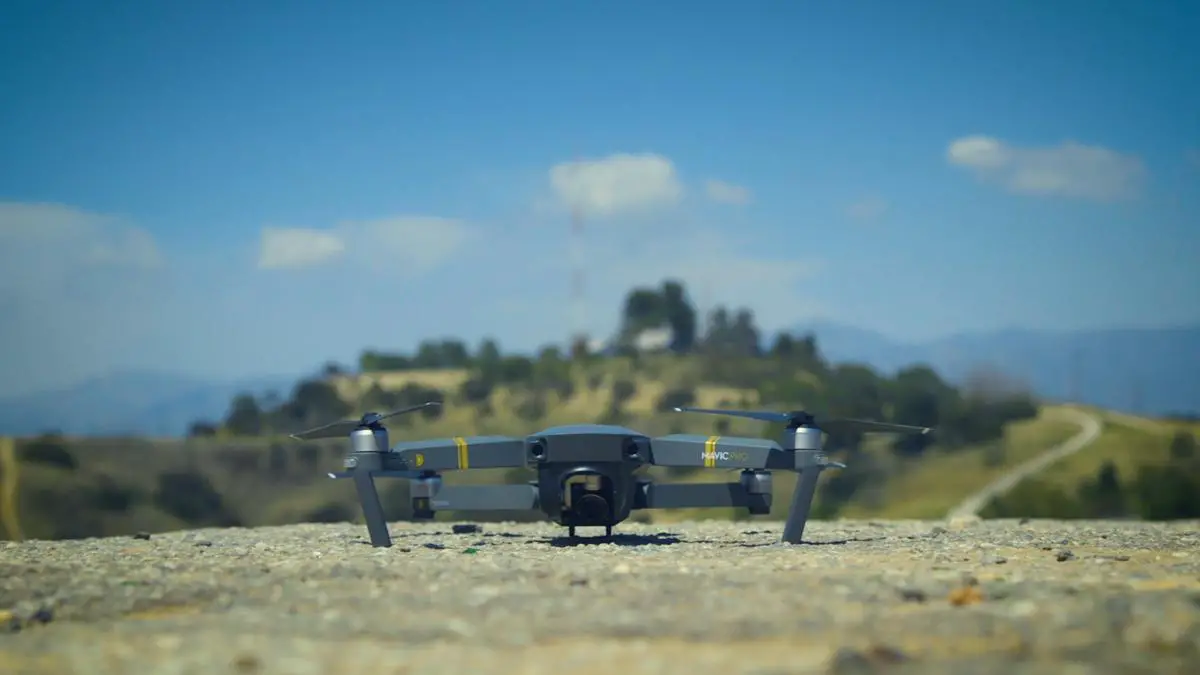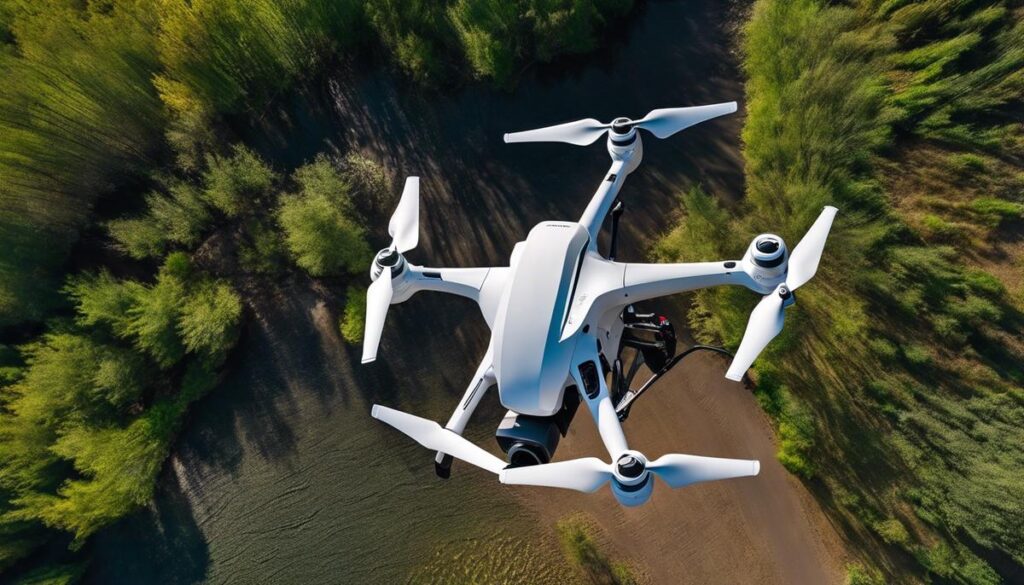As the popularity of recreational drones continues to soar, the need for proper insurance coverage also becomes increasingly critical. This article will guide enthusiasts and hobbyists through the essential aspects of recreational drone insurance, ensuring adequate protection against accidents, damage to property, and potential liability claims.
Why Drone Insurance Matters
Drone insurance is important for recreational pilots to consider due to potential risks and liabilities.Insurance protects against accidental damage to the drone or other property and offers coverage for repairs or replacements.Liability coverage is crucial for recreational drone enthusiasts and hobbyists, as it protects against personal injury and potential legal claims against the pilot.

Photo by javierdelgado on Unsplash
Types of Recreational Drone Insurance
As one of the primary types of recreational drone insurance policies, liability insurance caters specifically to hobbyists and enthusiasts. This coverage safeguards the drone operator from being held financially responsible for accidents that may occur during recreational use, providing protection against potential damage to a third party’s property or bodily harm to individuals. Given the rising popularity of drones and the inherent risks associated with their operation, securing comprehensive liability coverage is an essential aspect of minimizing potential financial losses.
Hull coverage, on the other hand, is an insurance policy that focuses on protecting the physical drone itself in the event of damage, theft, or loss. This policy compensates for the repair or replacement cost of the drone, thus providing financial relief to the drone enthusiasts in case of any unfortunate events. Hull coverage may include any additional equipment or accessories, such as cameras, that are integral components of the drone setup. While some may consider hull coverage optional, it’s imperative to assess the value of the drone and the accessories attached to make an informed decision on the necessity of this coverage.
For drone enthusiasts and hobbyists, understanding the different types of insurance policies associated with recreational drones is essential to protect their investment and ensure safety. Personal injury protection (PIP) is one such policy that covers injuries resulting from drone operations, whether it’s inflicted on the operator or a third party. Although liability insurance may compensate for third-party injuries, PIP offers a more extensive range of coverage, including medical expenses for the drone operator. Becoming knowledgeable about these insurance designations and the scenarios they cover can help hobbyists select the most comprehensive and suitable insurance policy for their needs.

Factors Affecting Insurance Premiums
One of the primary factors affecting recreational drone insurance premiums is the drone’s value. Generally, more expensive drones present higher risks to insurers, leading to higher insurance premiums. Insurance providers may also consider the potential cost of repairing or replacing damaged parts in the event of an accident. Drones equipped with advanced features such as obstacle avoidance or autonomous flight capabilities are often classified as lower risk, leading to more affordable insurance premiums. As drone enthusiasts continue to develop their skills and understanding, these factors can guide them in purchasing insurance that provides the right balance of coverage and affordability.
User experience also plays a significant role in determining insurance premiums for recreational drone pilots. Insurers typically consider factors such as the pilot’s age, flight experience, and any training certifications they may hold to assess the level of risk associated with insuring the drone. Pilots with more experience or professional certifications are often perceived as being less likely to be involved in accidents, making them eligible for lower premiums. Additionally, maintaining a good safety record and adhering to flight regulations can also help to reduce insurance costs by demonstrating responsible piloting behaviors.Coverage amount and location play crucial roles in recreational drone insurance. Depending on the drone’s intended use, potential liability exposure, and the pilot’s risk tolerance, the required coverage level may vary. While higher coverage limits often result in increased premiums, they provide better financial protection in case of accidents. The primary operating location of the drone can also influence insurance rates. Operating in high-risk areas such as densely populated urban environments or locations with busy air traffic can lead to higher premiums due to the heightened potential for accidents and property damage.

Major Drone Insurance Providers
One leading provider of recreational drone insurance in the United States is SkyWatch.AI, which specializes in customizing coverage based on individual needs. They offer various coverage options, such as liability, hull, and additional sensors and equipment insurance. SkyWatch.AI’s pricing structure depends on the chosen coverage level and the risk assessment score generated by their app. This app employs real-time data and analytics to deliver personalized coverage by considering factors like pilot experience, time, and location.Another prominent drone insurance provider is Thimble Drone Insurance. Thimble is unique in that they offer customizable on-demand drone insurance that can be purchased in hourly, daily, or monthly increments. This flexibility allows recreational drone pilots to only pay for the coverage they need when they need it, making insurance more affordable for hobbyists. Thimble’s policies provide liability coverage which covers bodily injury, third-party property damage, and medical payments. The coverage limits can be customized, with options for $1 million or $2 million in general liability coverage. The cost of coverage depends on factors like the duration of the policy and the geographic location of the drone usage.Axa XL is a reputable drone insurance provider that offers comprehensive recreational drone insurance options for enthusiasts looking to protect their investments. Their policies provide coverage for physical damage to the drone, liability for third-party bodily injury and property damage, personal injury, advertising injury, and invasion of privacy. Axa’s pricing is determined by factors such as the type of drone, its intended use, the operator’s experience, and the desired coverage amount. Their easily accessible online quoting platform makes obtaining coverage through Axa XL convenient, and their policies can be customized to meet a wide range of specific needs, ensuring robust protection for recreational drone users.

Risk Management Strategies
One vital aspect of risk management for recreational drone use is practicing safer flying habits. This not only reduces the risk of accidents and damage but can also positively impact your drone insurance coverage. Adhering to the Federal Aviation Administration (FAA) guidelines is crucial for safely operating your drone. Important guidelines include maintaining a line of sight with your drone, not flying above 400 feet, avoiding airspace restrictions, and exercising caution around people and private property. Taking the time to familiarize yourself with your drone’s operating manual, practicing in open spaces, and monitoring weather conditions are additional measures that can help minimize risks associated with flying your drone.
Proper equipment care is another key element when it comes to managing risks associated with recreational drone use. Ensuring that your drone is in optimal condition before each flight can help prevent equipment malfunction and the risk of accidents. This includes fully charging the batteries, checking for any physical damage or loose parts, and updating the firmware when required. Moreover, investing in quality drone equipment from reputable brands could enhance both the safety and longevity of your drone. By properly maintaining your equipment, you may reduce the likelihood of filing drone insurance claims, which could result in lower insurance premiums in the long run.
Adhering to relevant regulations that pertain to recreational drone use is essential in reducing risks and ensuring your insurance remains valid. Registering your drone with the FAA and obtaining any necessary certifications are important steps for compliance. Staying informed and updated on any changes to local, state, or federal regulations regarding drone use can also help you avoid penalties, fines, or voiding your drone insurance coverage. Awareness of the rules and possessing a sound understanding of your insurance policy’s terms and conditions can provide a safer flying experience and ensure adequate protection in case of accidents or damage.

Understanding claims and policy exclusions
Understanding claims and policy exclusions is crucial in ensuring a smooth claims process for your recreational drone insurance. In the event of an unfortunate incident while using your drone, it is imperative to file a claim promptly and accurately with your insurance provider. Make sure to detail the specifics of the event, including any property damage or personal injury, and be prepared to provide supporting documentation such as photographs, witness statements, and relevant receipts or invoices. Familiarizing yourself with the claims process and your insurance provider’s requirements ahead of time can help minimize delays in processing your claim and ensure a seamless experience.
Policy exclusions are clauses within your insurance policy that outline specific situations, incidents, or damages that are not covered. Being well-versed in these policy exclusions can prevent misunderstandings and unnecessary claim submissions. Common reasons for claim denials include operating the drone in a restricted or prohibited area, using the drone for commercial purposes with recreational insurance, or failing to adhere to FAA guidelines. To avoid claim denials, ensure that you are following all rules, regulations, and guidelines that pertain to your drone usage and review your insurance policy for any possible exclusions.Another crucial aspect of navigating the claims process with recreational drone insurance involves communication and cooperation with your insurance provider. Respond promptly to any inquiries from the insurer and provide any requested documentation or clarification in a timely manner. Additionally, keep a record of all communications and documentation exchanged between you and your insurance provider. This can help avoid potential disputes down the line and ensure the claims process moves forward efficiently. By staying informed and proactive, you can effectively navigate claiming and policy exclusions, ensuring the best possible outcome for your recreational drone insurance needs.

Photo by sharegrid on Unsplash
Understanding and securing the right recreational drone insurance policy is crucial for enthusiasts and hobbyists alike. By exploring the types of coverage, factors affecting premiums, major providers, risk management strategies, and claims processes, this article aims to provide a comprehensive resource for drone enthusiasts to make informed decisions about their insurance needs. Fly safe and enjoy the thrill of this exciting hobby, knowing that you’re well-protected from any unforeseen incidents.
Originally posted 2023-05-30 19:44:09.


